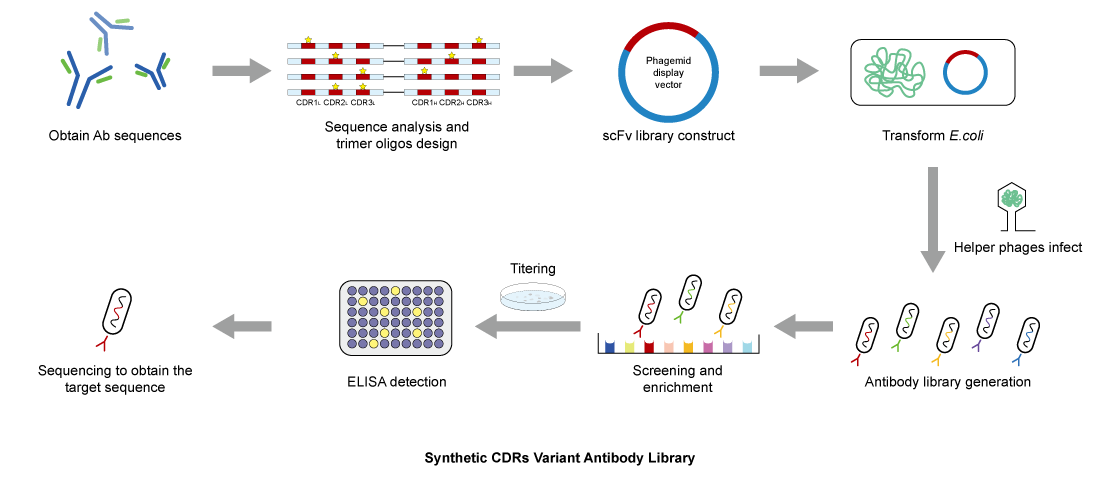Synthetic antibody libraries help to design, construct, and successfully generate highly functional antibodies for various applications. Its characteristics of optimized framework sequences (a robust scaffold) and controlled CDRs diversity give it unique advantages compared to natural antibodies.
Synbio Technologies utilizes novel trimer oligonucleotide directing mutagenesis for codon optimization and synthesizing antibody CDR3 or all CDRs to create the variant regions scFv or nanobody libraries. The synthetic scFv antibody libraries can be applied to the research of improving the binding kinetics and affinity of studied antibodies. The advantages of nanobody libraries are higher solubility, improved stability in reducing conditions, as well as higher expression yield and thermal stability.
Competitive Advantages
- Precise targeting: Control codon preferences and amino acid composition and proportion of each mutation site in the CDRs.
- High diversity: Exquisite design creates high diversity of the synthetic antibody libraries.
- High quality libraries: The updated phage display system provides guarantee for larger storage capacity and highly functional antibodies.
- Cost-Effective: Competitive prices and affordable services.
Service Specifications
| Process | Details | Deliverables | Turnaround Time |
|---|---|---|---|
| Sequence analysis and trimer oligos design | Optimize framework sequence and design the amino acid composition and proportion of the CDRs. |
|
1-2 weeks |
| Vector construction | Sequence assembly and cloning in the antibody expression vectors. | 2-3 weeks | |
| Transform E.coli and Library construction | Transform the constructs into TG1 competent cells, then prepare the plasmid and identify the capacity and accuracy of the library. | 2-3 weeks |
Service Flow


